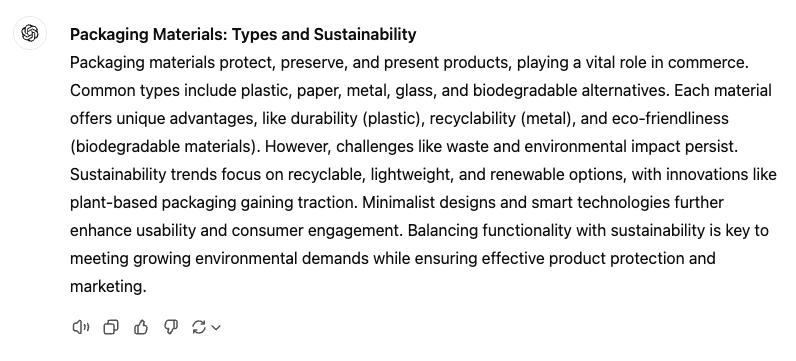With "Google Advanced Search" you can narrow down your search results on Google and thus search more specifically for keywords. In addition, you limit the results of complex search queries. Click here to get more information! ... Continue reading


Prompting is a central part of interacting with artificial intelligence (AI) and describes the method of entering targeted instructions or questions – i.e. prompts – into an AI system to generate specific, helpful answers or content. The right technique enables you to control AI models such as ChatGPT, Midjourney and other tools efficiently and accurately. Particularly for creative or complex tasks, well-thought-out prompts can make the difference between relevant, valuable results and unclear, unhelpful answers.
Prompts are used in many areas today – from content creation to the automation of business processes. Prompts play a central role in marketing, customer communication and creative projects, such as creating AI-generated online texts.
A good prompt is formulated precisely, explains exactly which result is expected, and contains all the relevant information for the context. Let’s take as an example the task of having an AI write a blog post about the advantages of sustainable packaging material.
‘Write a short blog post about the advantages of sustainable packaging material for companies. Discuss how sustainable packaging can protect the environment, reduce costs in the long term and improve brand image. Start with a short introduction that sensitises readers to the topic and end with a conclusion that summarises the main points.’
The prompt puts the focus on the advantages of sustainable packaging material and already specifies specific advantages that the post should cover. In addition, the target audience is explicitly named and the AI is given clear instructions regarding the desired content and the structure to be used, as well as the desired word count if needed. With this information, a chat AI like ChatGPT can now provide the following text, for example:

‘Write about packaging material’
The problem is obvious: the AI does not know that the question is specifically about sustainable packaging material, nor who the target group is or which aspects of packaging material should be highlighted. Of course, ChatGPT can also work with this, but the result is as general as the prompt itself:

Not only users, but also developers have to deal with the question of how to enter prompts correctly and how to optimise the output of results on a daily basis. Prompt engineering is the further development of prompting and aims to iteratively improve prompts in order to get the best results from an AI. Prompt engineers systematically develop detailed instructions that guide AI models reliably and repeatably to meaningful results. This is important because large AI models often react variably and need to be adapted to the respective input. To exploit the full potential of AI models, various techniques such as tokenisation, top-K sampling and model parameter tuning are used.
Aside from specialising in the further development of prompting itself, it is interesting to create reusable templates that make everyday work and private life easier. Prompt templates are pre-built input templates that enable fast and consistent creation of prompts using proven wording and structures. Especially for frequently recurring tasks, such as text generation, data analysis or image generation, you save time and have a reliable basis for precise results. Templates also promote quality assurance by integrating proven best practices. The challenge is to design them flexibly enough to allow for customisation to specific requirements. Well-maintained templates are a valuable tool for using the full potential of AI efficiently and in a targeted manner.
A well-formulated prompt is the key to successful results with AI tools and helps to optimally support you in your day-to-day work. At the same time, every technology comes with its own challenges, here is a brief overview:
As a result, knowledge of how to prompt correctly is increasingly becoming a sought-after skill. This is fundamentally changing the way people and businesses can use and benefit from AI.
You want to learn more about exciting topics?
